Kazakhstan’s constitutional council has rejected a referendum to extend its leader’s rule until 2020. President Nursultan Nazarbayev has been head of Central Asia’s largest economy for over 20 years. The 70-year-old leader has a month to appeal the decision. However, in his state of the union address last week, he said that should the vote be rejected, he would stand for election in 2012.
Europe Archive
Free Newsletter
Russia and Japan recently reached an agreement to build a joint liquefied natural gas plant in Vladivostok, Russia. In an e-mail interview, Michael Bradshaw, professor of human geography at the University of Leicester and vice president for Research and Higher Education at the Royal Geographical Society, discussed Russia-Japan energy cooperation. WPR: What is the status quo of Russia-Japan energy cooperation? Michael Bradshaw: Russia has only recently become a significant supplier of oil and gas to Japan. The Sakhalin-1 and Sakhalin-2 projects have progressively exported oil and liquefied natural gas (LNG) to Japan since 1999, and both have Japanese shareholders. The […]
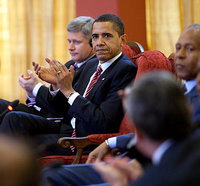
Ian Bremmer and David Gordon, of the Eurasia Group, do not sugar-coat the shape of the new world order emerging in the 21st century. They starkly note: For the first time since the end of World War II, no country or bloc of countries has the political and economic leverage to drive an international agenda. The United States will continue to be the only truly global power, but it increasingly lacks the resources and domestic political capital to act as primary provider of global public goods. There are no ready alternatives to U.S. leadership. They dub this international order “G-zero,” […]
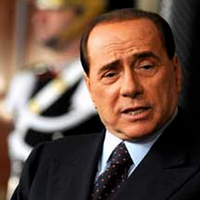
In December, Italy’s bilateral trade agreements with Russia drew media scrutiny. First, a Wikileaks cable release indicated anxiety on the part of various U.S. diplomats over Italian Prime Minister Silvio Berlusconi’s close friendship with Russia’s leaders, particularly Russian President Vladimir Putin. Then Italy’s largest energy company, Eni, renewed its extensive 2006 contract with Russia’s Gazprom, including plans to jointly build the South Stream pipeline across the Black Sea, as well as cooperation in drilling, transportation and personnel training. Critics in Italy and abroad believe the energy partnership between the two nations results as much from Berlusconi’s personal politics as from […]
A civilian nuclear agreement between Russia and the U.S. recently entered into force. Signed in 2008, the 123 Agreement was revived by U.S. President Barack Obama as part of the U.S.-Russia reset. In an e-mail interview, Richard Weitz, senior fellow at the Hudson Institute and a World Politics Review senior editor, discussed the U.S.-Russia 123 Agreement. WPR: What was the impetus for U.S.-Russia 123 Agreement? Richard Weitz: Russian and U.S. officials wanted to improve their bilateral relationship, while their nuclear industries, two of the largest in the world, wanted to expand their commercial collaboration. Presidents George W. Bush and Vladimir […]
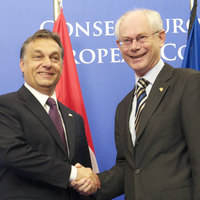
On Jan. 1, the same day Hungary began its six-month EU presidency, Hungarian Prime Minister Viktor Orban’s government introduced a law requiring “balanced” media coverage and instituting registration requirements for those disseminating information. The international furor over the new law threatens Hungary’s chances of making the most of its EU presidency, while offering a crumb of hope to a severely weakened opposition. France, Germany, Luxembourg, the U.K. and other EU members expressed concern over the media law, but Orban simply dismissed the criticism as misinformed and anti-Hungarian. He had already angered the business community by imposing surtaxes on banks, telecoms […]
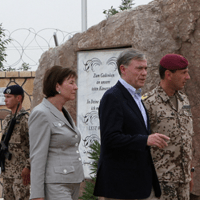
Last June, German President Horst Koehler, after visiting Afghanistan, called Germany’s participation in the war there vital to protecting long-term German interests. Koehler, whose role is primarily ceremonial, with little real political responsibility, told a German radio station that Germany’s export-driven economy and dependency on foreign trade meant that, “. . . in an emergency, military intervention is necessary to defend . . . trade routes, or prevent . . . regional instabilities that would certainly have negative effects on [Germany’s] trade, jobs and income.” He then urged Germans to “look at the reality” of Germany’s presence in Afghanistan and […]
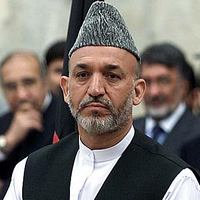
Afghan President Hamid Karzai’s two-day stay in Moscow on Jan. 20-21 marked his first official bilateral visit and the first state visit by an Afghan president to the Russian Federation since its founding after the Soviet Union’s disintegration in December 1991. The trip — during which Karzai met with President Dmitry Medvedev, Prime Minister Vladimir Putin, and other Russian political and economic leaders — provided an important opportunity to both confirm recent growth in formal ties between the two countries as well as impart additional momentum for further expanding the relationship. Karzai was accompanied by most of the Afghan cabinet, […]
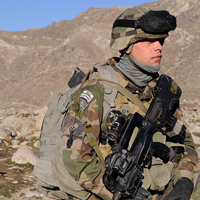
The attacks of Sept. 11 were a significant event: for the attacks in and of themselves; for what they brutally revealed in terms of international terrorism’s new ambitions; for their chain reactions, around the world and, in particular, in the countries that, whether due to solidarity or interest, entered the global war on terrorism alongside the United States. Among those nations, France immediately rallied to America’s side and, as a result, found itself, along with others, quickly dragged into a conflict that it had not sought: the Afghanistan War. Nine years since they arrived in Afghanistan, French troops are still […]
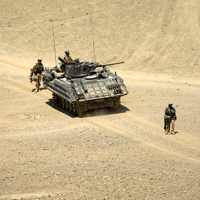
When the Netherlands and other European members of NATO invoked Article 5 of the North Atlantic Treaty after the attacks of Sept. 11, 2001, they almost certainly did not anticipate that, in doing so, they would find their armed forces engaged in a decade-long conflict in Afghanistan. The Article 5 declaration — holding that Sept. 11 was an attack on NATO’s collective security — was intended as a low-cost gesture of trans-Atlantic solidarity with the United States and the traumatized American people, rather than as an operational commitment to wage a protracted and frustrating conflict. But through NATO, European militaries […]
This video, reportedly taken by an eyewitness to the deadly terrorist attack at the Domodedovo airport outside Russia on Monday, appeared on YouTube Monday afternoon. Initial reports indicate 35 people were killed in the bombing, with 152 others injured. The video depicts the immediate aftermath of the bombing, showing a smoke-filled area of the airport and the bodies of victims on the floor.
Appearing this week before The Iraq Inquiry, former British Prime Minister Tony Blair expressed his belief that former U.S. president George W. Bush was set on regime change in Iraq straight after the 9/11 attacks. The Iraq Inquiry, also referred to as the Chilcot Inquiry after its chairman, Sir John Chilcot, is the ongoing British public inquiry into the United Kingdom’s role in the Iraq war.
Two blasts hit the eastern Ukrainian town of Makiyivka on Jan. 20 and authorities were bracing for possible further attacks after unidentified attackers left a note at one of the explosion sites demanding millions of euros from the government. Ukraine’s security service is not ruling out terrorism. No one was hurt in the blasts.
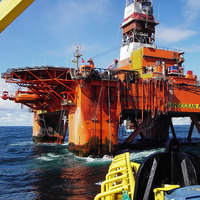
On Jan. 14, two of the world’s oil giants, Russia’s Rosneft and BP, announced an unprecedented “strategic global alliance,” in which they will be exchanging shares and expanding their joint ventures, including launching a new Arctic oil-drilling project. Both companies bring important assets to their new alliance, but the deal has alarmed foreign governments and environmentalist organizations due to its potential commercial, security, and ecological implications. The arrangement also raises interesting questions related to the Russian government’s economic modernization program. Through the deal, Rosneft will acquire 5 percent of BP’s shares, while BP will obtain an additional 9.5 percent share […]
Most expats have a love/hate relationship with the N.Y. Times, with the love consisting of that moment of eager anticipation upon seeing that the paper of record has deigned to cover one’s adoptive country, and the hate consisting of apoplectic exasperation at the trivial “color” pieces it generally runs or how far off the mark its more serious coverage is. Like drivers, the vast majority of whom rate themselves as above average, expats universally consider themselves more qualified than their local Times reporter. As if to put that notion to rest, the Times magazine ran not one, but two solid […]
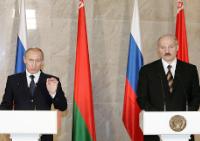
In the ongoing saga of Russian energy diplomacy — intimately tied to Moscow’s attempts to consolidate its influence in its “near abroad” — the Dec. 9 oil-trade agreement with Belarus goes down as an important marker of Russia’s reinvigorated authority in its immediate neighborhood. With President Viktor Yanukovych now exercising increasingly authoritarian control in Ukraine, and Belarus no longer flirting with the West, Moscow can safely assume that the two-decade era of Western institutions and influence expanding eastward has been put on hold indefinitely. This turning point is concurrent with a thawing of relations between Russia and many Western countries, […]
